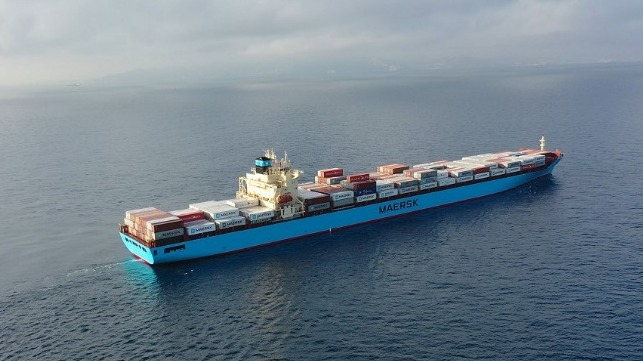FMC Investigating Reports Maersk Line Ships Were Denied Port Calls in Spain

The U.S. Federal Maritime Commission is starting an investigation and seeking information after reports that Spain denied requests for port calls by Maersk Line, Ltd. ships operating under the Maritime Administration’s Maritime Security Program. They are seeking explanations citing the FMC’s authority to protect the foreign trade of the United States.
The Commission cites a report from The Maritime Executive in November that said two Maersk Line, Ltd. vessels sailing from the United States to the Mediterranean were being diverted from scheduled port calls in Spain. The vessels, Maersk Denver and Maersk Seletar, operate for the U.S. subsidiary of Maersk which has a contract to transport U.S. government cargo and receives a retainer from MARAD for availability.
Activists protesting the war in Gaza had appealed to the Spanish government to enforce a restriction enacted in May 2024 not to aid vessels transporting military cargo. The groups alleged the Maersk Line, Ltd. vessels, which had scheduled port calls in Spain, were carrying a wide array of military equipment which they said was being supplied to Israel to support the actions in Gaza. Spain had previously turned away a Danish cargo ship in May reported to be carrying explosives after similar activist objections. It articulated a government policy not to support the transportation of military equipment.
Spain’s Foreign Ministry in November confirmed that it had determined not to permit the port calls of the Maersk vessels. The AIS and online schedule of the vessels showed them diverting to Tangier Med, where they were also met by protestors.
In an official notice of the investigation to be published on December 6, the FMC writes, “The Commission is concerned that this apparent policy of denying entry to certain vessels will create conditions unfavorable to shipping in the foreign trade, whether in a particular route or in commerce generally.”

that matters most
Get the latest maritime news delivered to your inbox daily.
The Commission has consistently held that its powers do not only protect U.S.-flagged shipping but also foreign governmental actions that are detrimental to third-flag carriers that can create conditions unfavorable to shipping in U.S. foreign trade. At this initial stage of the investigation, the Commission says it will focus on providing a route for interested parties, including the Government of Spain and common carriers that have been denied entry into Spanish ports, to provide information, perspectives, and proposed solutions. They are seeking information to confirm if vessels were barred from calling in Spain and an “explanation or justification provided by the Government of Spain.”
Under its authority, the FMC reports it can levy significant remedies, including substantial daily fines, and barring foreign vessels from calling at U.S. ports. The filing states the fines can be up to $2.3 million per voyage.
